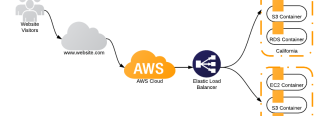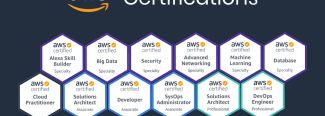


Những Điều Cần Biết Về Điện Toán Đám Mây Cho Doanh Nghiệp Vừa Và Nhỏ



Samira Kabbour
CMO
Điện toán đám mây tồn tại từ thời kỳ đầu khi Internet xuất hiện, trong những năm gần đây nó đã trở thành một thuật ngữ sử dụng rộng rãi. Bất cứ ai sử dụng máy tính, các thiết bị thông minh trong khoảng một thập kỷ qua chắc chắn đã sử dụng các dịch vụ đám mây ở mức độ nào đó.
Dịch vụ đám mây được ứng dụng đại trà sớm hơn so với trong lĩnh vực kinh doanh, nguyên nhân chủ yếu do mối quan ngại về dữ liệu quan trọng mà các công ty đang sở hữu. Họ chưa có sự tự tin khi đưa dữ liệu lưu trữ trên “Đám mây”.
Việc chuyển đổi hệ thống IT của doanh nghiệp từ “Nội bộ” lên “Đám mây” là một quá trình lâu dài, không chỉ về mặt kỹ thuật công nghệ, mà còn về nhận thức, tư duy. Nhưng điều này đang thay đổi, và đó là xu hướng tất yếu.
Năm 2017, Forrester Researcher dự đoán rằng 50% doanh nghiệp toàn cầu sẽ sử dụng ít nhất một nền tảng đám mây công cộng vào cuối năm 2018. Ngoài ra, thị trường đám mây công cộng (Public Cloud Platform) trên toàn cầu được định giá 178 tỷ USD và sẽ tiếp tục đà phát triển mạnh mẽ. Điện toán đám mây là làn sóng của tương lai và dường như chúng ta đang chứng kiến thời điểm phát triển bùng nổ.
Các doanh nghiệp đang sử dụng dịch vụ đám mây với tốc độ ngày càng tăng vì những lý do như:
• An toàn và giá cả phải chăng
• Cải thiện hiệu quả
• Dễ dàng mở rộng theo nhu cầu kinh doanh của bạn
• Loại bỏ nguy cơ mất dữ liệu
• Luôn cập nhật các công nghệ mới nhất
• Truy cập mọi lúc, mọi nơi
Khi những lợi ích của điện toán đám mây ngày càng trở nên gần gũi hơn với doanh nghiệp, nhiều doanh nghiệp lại gặp khó khăn trong việc lựa chọn nền tảng điện toán đám mây cũng như loại hình dịch vụ phù hợp. Renova Cloud được thành lập với mục tiêu hỗ trợ các tổ chức, doanh nghiệp trong hành trình chuyển đổi từ mô hình điện toán truyền thống sang “Điện toán Đám mây”. Dưới đây, chúng tôi phác thảo các loại hình dịch vụ đám mây khác nhau và các lợi ích cụ thể (Gợi ý: Bạn có thể sử dụng kết hợp nhiều nền tảng Đám mây với nhau)
Infrastructure as a Service (IaaS)
IaaS cung cấp phần dịch vụ về hạ tầng thông qua giao diện ảo. Máy chủ, lưu trữ, kết nối mạng và các tính năng bảo mật là các dịch vụ cơ bản mà IaaS cung cấp. Các ứng dụng kinh doanh phổ biến cho IaaS bao gồm Dev/Test, Web hosting, Backup/DR, Computing và Analytics. IaaS giúp tiết kiệm cho các doanh nghiệp vì nó giúp loại bỏ chi phí liên quan đến phần cứng, chi phí vận hành trung tâm dữ liệu.
Platform as a Service (PaaS)
PaaS cung cấp một môi trường cho phép người dùng xây dựng các ứng dụng và dịch vụ Internet, từ đơn giản đến phức tạp. PaaS cung cấp tất cả các dịch vụ giống như IaaS, tuy nhiên có thêm lớp Middleware, công cụ phát triển, BI, quản lý cơ sở dữ liệu, chính vì vậy nó thường được sử dụng bởi đội ngũ phát triển phần mềm.
Khách hàng sử dụng PaaS chỉ cần các dịch vụ cơ bản từ nhà cung cấp, và kết nối Internet ổn định và an toàn. PaaS giúp giảm thiểu thời gian phát triển phần mềm, mang đến tính linh hoạt và khả năng thích ứng cao. Thông thường, các nhà phát triển làm việc trên một ứng dụng hoạt động ở các khu vực địa lý khác nhau và PaaS giúp họ dễ dàng kết nối và hợp tác hơn.
Software as a Service (SaaS)
Email, Lịch, Họp trực tuyến, Quản lý Dự án và các công cụ văn phòng như GSuite là tất cả các ví dụ về dịch vụ SaaS. SaaS cung cấp các giải pháp phần mềm cho phép các doanh nghiệp làm việc hiệu quả, có tổ chức và hệ thống hơn. Các ứng dụng SaaS thường được sử dụng để hạch toán và lập hóa đơn, theo dõi bán hàng, giám sát hiệu suất, liên lạc giữa các bên và lập kế hoạch tổng thể. Khách hàng chỉ trả tiền cho phần mềm họ sử dụng mà không phải chịu gánh nặng về chi phí hạ tầng, và vận hành hệ thống.
Disaster Recovery as a Service (DRaaS)
DRaaS tận dụng tài nguyên “không giới hạn” trên đám mây làm môi trường backup dự phòng để bảo vệ các ứng dụng khỏi sự gián đoạn và mất mát. Phòng chống mất mát dữ liệu và gián đoạn dịch vụ là mối quan tâm lớn đối với các doanh nghiệp thuộc mọi quy mô. Nếu một hệ thống bị hỏng, điều cần thiết phải làm là sao lưu toàn bộ hệ thống và khôi phục lại càng nhanh càng tốt khi có sự cố.
Câu hỏi lớn đặt ra là: Dịch vụ và nền tảng Điện toán đám mây nào là phù hợp với doanh nghiệp của bạn?


Có rất nhiều cách tiếp cận và mô hình kết hợp các dịch vụ đám mây cho doanh nghiệp của bạn, điều quan trọng là quy trình và kế hoạch cụ thể. Khi ngày càng có nhiều hệ thống CNTT được đưa lên Đám mây, việc chọn đúng nhà cung cấp điện toán đám mây cho doanh nghiệp của bạn sẽ rất quan trọng cho sự phát triển lâu dài. Dưới đây là một số bước phải làm:
1. Chiến lược đám mây. Nhu cầu của doanh nghiệp bạn luôn có tính đặc thù so với các tổ chức doanh nghiệp khác. Để đảm bảo nhà cung cấp dịch vụ đám mây đáp ứng yêu cầu của bạn, hãy tiến hành đánh giá cơ sở hạ tầng, chính sách, quy trình, thực tiễn phát triển. Chỉ sau đó bạn mới có cơ sở lựa chọn nhà cung cấp nào là phù hợp.
2. Mức độ cam kết dịch vụ (SLA). Kết hợp tất cả các dịch vụ của bạn vào một hóa đơn hàng tháng, điều này sẽ giúp quản lý dịch vụ của bạn ở mức độ dễ dàng hơn.
3. Kiểm tra bảo mật thường xuyên. Xem xét các nhà cung cấp chính sách quản lý rủi ro, hồ sơ tuân thủ kiểm toán và phân tích rủi ro. Bảo mật dữ liệu là điều mà không doanh nghiệp nào có thể xem nhẹ.
4. Giám sát dịch vụ. Có thể dễ dàng chuyển dữ liệu của bạn lên đám mây, nhưng nếu bạn muốn đảm bảo dịch vụ của mình đang thực hiện đúng yêu cầu, thì cần phải theo dõi cẩn thận. Giám sát chặt chẽ nhằm đảm bảo dịch vụ của bạn chạy trơn tru và hiệu quả.
Vậy liệu điện toán đám mây có nhược điểm? Những lợi thế của điện toán đám mây mang lại là không thể bàn cãi, nhưng có một điều cần lưu ý: Một khi doanh nghiệp của bạn chuyển sang điện toán đám mây, bạn sẽ muốn chắc chắn rằng dữ liệu của mình có thể truy cập dễ dàng và bạn có toàn quyền lựa chọn và thay đổi nhà cung cấp dịch.
Tốc độ thay đổi nhanh chóng và tiến bộ trong công nghệ đồng nghĩa với việc các dịch vụ mới xuất sẽ hiện trên đám mây liên tục. Renova Cloud sẽ là đối tác tin cậy, hỗ trợ bạn trong việc lựa chọn giải pháp tốt nhất và chi phí đầu tư hợp lý, đáp ứng được các nhu cầu cụ thể của doanh nghiệp.



